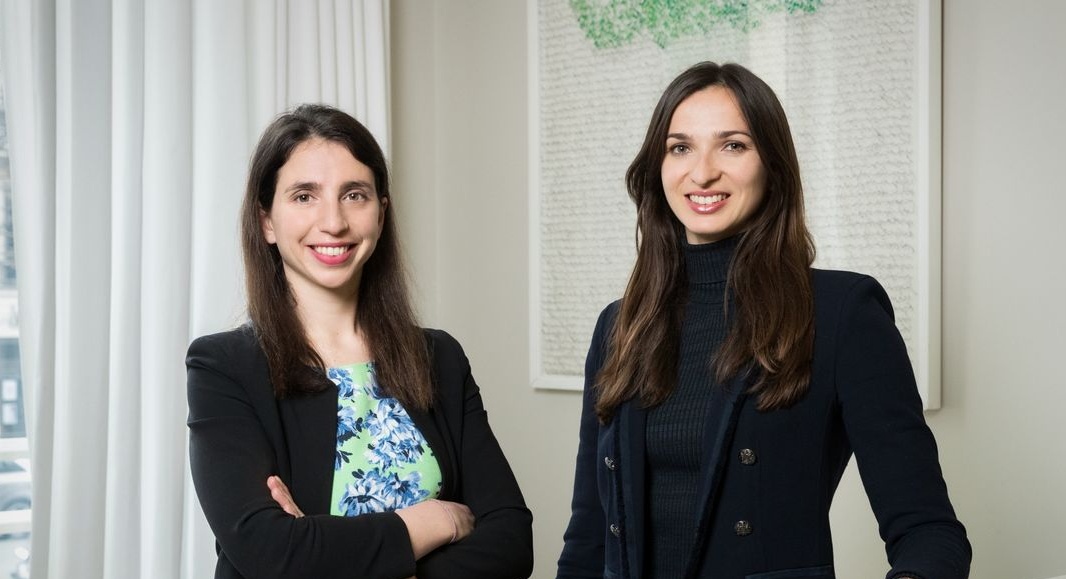Investor Profile: Revaia

Growing Business Intelligence talks to Alice Albizzati, co-founder and partner at pan-European growth investor Revaia, about the firm’s investment approach and its recently unveiled board representation initiative, which aims to introduce more diversity and operational expertise to the governance of VC-backed companies.
Revaia (formerly known as Gaia Capital Partners) was established in 2018 by Alice Albizzati and Elina Berrebi. Prior to launching the VC firm, Berrebi had several years of experience as an investor at French private equity house Eurazeo and sovereign wealth fund FSI; Albizzati is also an alumni of FSI, and worked as an investor for mid-market private equity firm LBO France.
The firm raised a first fund of €250m and is currently investing from its second vehicle, which is still fundraising with a target of €500m. Revaia invests across the series-B to pre-IPO stages and has built a portfolio of 14 companies based in Europe, Israel and North America - including Aircall, Epsor, GetAccept, gohenry, Planity, Welcome to the Jungle and Yubo.
Revaia has historically had a strong focus on the French market, but is also paying close attention to other key venture hotspots in Europe, Albizzati says: “The UK is a very interesting market, especially when looking at the size of the local ecosystem, and we are also looking at the DACH, Nordic and Southern regions.” The firm has a 15-strong team with offices in Paris and Berlin, alongside operating partners based in North America.
Revaia typically makes up to five investments per year, depending on market conditions, and provides initial tickets in the €10-50m range. It has a generalist approach in terms of sectors, instead focusing more on key characteristics it likes to see in potential portfolio companies, Albizzati explains. “We are aiming to invest with purpose - that means backing high-growth companies that have the potential to become leaders in their field, but also taking into account their impact on the planet and society,” she says.
Getting on board
When it comes to helping investees realise their vision and achieve success, Revaia is a firm believer in the importance of strong governance. “Governance is something that’s very important to help scale a company - not only in terms of the rules and processes, but also in terms of who the people on the board are,” Albizzati says. “Having the right people can really unlock growth in a spectacular way but, conversely, not having the right board dynamic can completely paralyse a company.”
The firm identified an added challenge specific to the VC area, Albizzati adds: “In VC, the governance tends to be very collective, given the way funding rounds are structured. But broadly speaking you have the founders on the one hand, and then the various VC/growth investors. The investor perspective is important, but adding more diversity is undoubtedly helping to create performance. We see that diversity a lot on the boards of public companies, but not so much in the VC space.”
In order to navigate that challenge, Revaia worked on its recently unveiled its board representation initiative, which it claims is an industry first in the growth equity space. When leading an investment, the firm will not only look to have a team member on the board, but will also appoint another board member drawn from a pool of 500+ executive-level professionals and entrepreneurs Revaia has built over the years. That industry expert will not only represent the fund, but will also offer both mentoring and strategic counsel.
“We are pushing for independent board members because it is good to have that external view, and bring in an extra layer of operational experience to the table,” Albizzati says. “We feel this is the best of both worlds for the business, as they will benefit from both an investor’s perspective and more of an operational view on the board. It is also an opportunity to introduce more gender diversity at the board level, which is something we always aim on improving even further.”
Helping hand
Portfolio companies GoHenry and Epsor were among the first to take part in the initiative, with their board members having been in place for a year already. Talking about GoHenry, a UK-based prepaid debit card and financial education app for children, Albizzati says: “One of the company’s main growth plans is to expand into the US. So we helped bring in Tricia Han, the CEO of MyFitnessPal and an expert in consumer mobile platforms, internationalisation and client acquisition. She will be able to work directly with the leadership team on international expansion, but also on product development and other key themes.”
The firm has put four board members across for now. Planity, a France-based SaaS platform for beauty salons, appointed Wais Shaifta, a non-executive director of the Gym Group, while Epsor, an employee savings and retirement specialist, appointed People Doc co-founder Clément Buyse. Revaia is currently working on two other placements, Albizzati says: “It is a pretty time consuming process by virtue of it being so bespoke to each company, so it can take up to a year following the investment for us to put the right person on the board.”
“The selection process starts early on, usually when we submit the letter of intent,” she continues. “We put forward an initial list of potential board members that we feel would be a good fit for the business. We can then sit down with the founders and management to work out their needs and plans for growth, and tailor the list further. Following that, it’s a collaborative choice between the founders and us, because the fit has to be right for all parties.”
